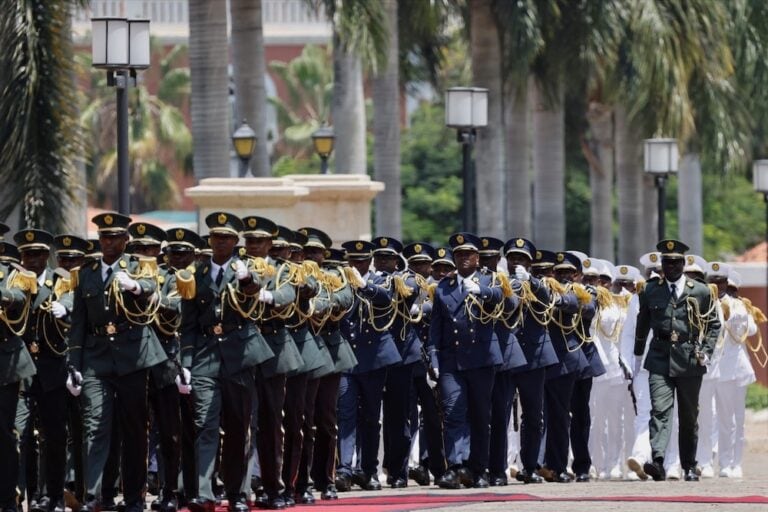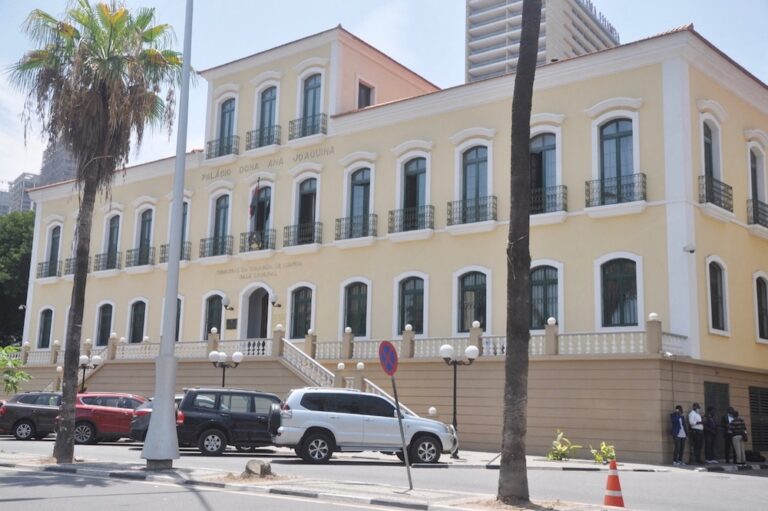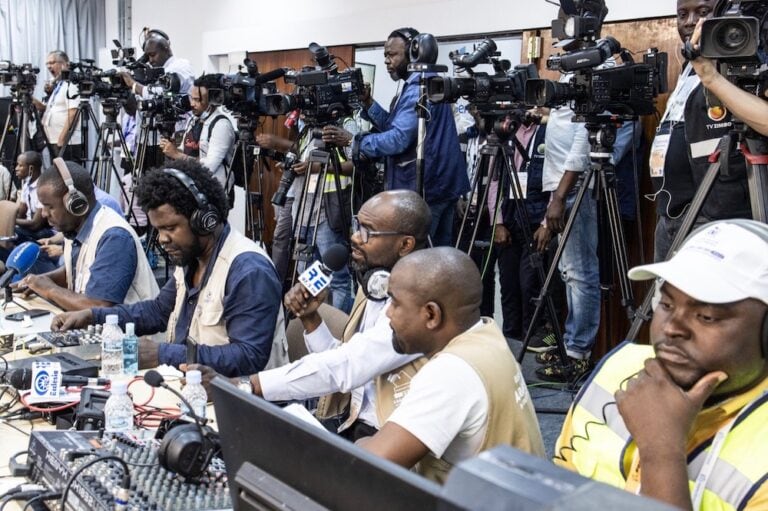(MISA/IFEX) – On 11 July 2001, Angolan journalist Gilberto Neto appeared for a second day of interrogation, at the Department of Selective Crimes of the National Direction of Criminal Investigation (DNIC). Neto, a reporter for the independent weekly newspaper “Folha 8” was arrested on 7 July, along with foreign researcher Philippe Lebillon, after checking-in at […]
(MISA/IFEX) – On 11 July 2001, Angolan journalist Gilberto Neto appeared for a second day of interrogation, at the Department of Selective Crimes of the National Direction of Criminal Investigation (DNIC).
Neto, a reporter for the independent weekly newspaper “Folha 8” was arrested on 7 July, along with foreign researcher Philippe Lebillon, after checking-in at the Malange airport, in Northern Angola. Two police officers boarded the plane with the journalist and the researcher, escorting them to the capital of Luanda, and handed them over to DNIC.
Neto’s apparent crime was the simple fact of travelling to Malange as a journalist, without the authorisation of local Governor Flavio Fernandes. According to Neto, investigator Alexandre Neto, who is carrying out the questioning, is trying to prevent the presence of his lawyer, deeming it unnecessary. Neto also stressed that the investigator kept pounding a knife into a written questionnaire that he was using to guide his questions.
The investigator kept questioning why Neto had gone to Malange without the governor’s consent and where and how he had met Lebillon, and why was he working with him in Malange. “It was unbearable because Mr. Alexandre Neto repeatedly was asking the very same questions over and over again. Essentially, they told me that as a citizen I cannot move freely nor meet people according to my own will and interest,” said Neto.
According to Neto’s lawyer, Anacleta Pereira, “the police illegally arrested my client and illegally confiscated his belongings.” She added that: “The Angolan Constitution guarantees the freedom of movement in the country for all citizens, and my client does not need anyone’s authorisation to travel within his own country. Furthermore, he does not need any authorisation to interview people.”
For Pereira, the “police have acted illegally and now they will try to find any excuse to get whatever evidence to justify their action. I do believe that such an action bears the hand of Governor Flavio Fernandes. So, we are before just one more arbitrary [action] of the Police.”
Neto and Lebillon were due to appear in the Department of Selective Crimes again, on the morning of 12 July, for more questioning and to learn about the fate of their documents and equipment. However, as of 11 July neither one had received any notice for the next day’s questioning.


